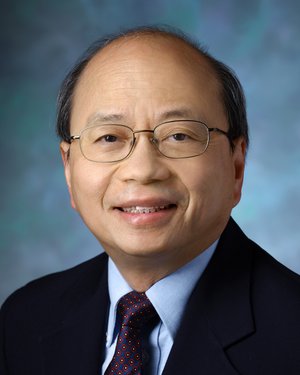Background
Dr. King-Wai Yau is a professor of neuroscience and ophthalmology at the Johns Hopkins University School of Medicine. Dr. Yau’s research focuses on the flow of molecular signals that are important to sight and smell. His discoveries have helped advance the understanding of many hereditary blinding diseases that affect these rod and cone cells.
Those discoveries include identifying the key roles of two key signaling molecules—calcium and cyclic GMP—in visual transduction, the process of how light is converted into electrical signals by the retina’s rod and cone photoreceptor cells.
In addition to helping to find the cause of a form of central vision loss, Dr. Yau also characterized the light-response behaviors of a newly discovered photoreceptor cell that responds to light and affects circadian rhythms and other non-image-forming visual functions.
Dr. Yau earned his Ph.D. in neurobiology from Harvard University before completing a neurobiology research fellowship at the Stanford University School of Medicine. He completed a second research fellowship in the Physiological Laboratory of England’s Cambridge University. He also holds an A.B. in physics (Phi Beta Kappa, Sigma Xi) from Princeton University. He joined the Johns Hopkins faculty in 1986.
A fellow of American Academy of Arts and Sciences, as well as an elected member of the National Academy of Sciences, Dr. Yau has published well over 100 journal articles. His many professional honors include the National Academy of Sciences’ 2013 Alexander Hollaender Award in Biophysics and the 2012 Chanchlani Global Vision Research Award.


Patient Ratings & Comments
The Patient Rating score is an average of all responses to physician related questions on the national CG-CAHPS Medical Practice patient experience survey through Press Ganey. Responses are measured on a scale of 1 to 5, with 5 being the best score. Comments are also gathered from our CG-CAHPS Medical Practice Survey through Press Ganey and displayed in their entirety. Patients are de-identified for confidentiality and patient privacy.